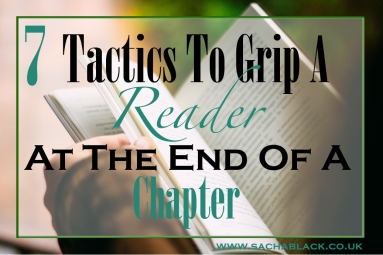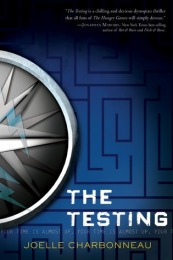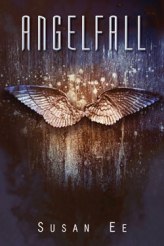 When you write the end of a chapter, you want readers to be desperate to turn the page and read on irrespective of the fact its 3:41AM and they have work the next day.
When you write the end of a chapter, you want readers to be desperate to turn the page and read on irrespective of the fact its 3:41AM and they have work the next day.
You want your book to be the cause of their bleary eyed appearance as they clutch the work coffee machine and growl at any one who comes near.
But what is it about a chapter ending that makes someone read on, rather than put it down and go to snoozeyland?
Here are nine tactics you can use to grip a reader and tickle their temptation soft spot to read on.
Tactic ONE – Ignore The Reader
The end of a chapter is also called a transition because it ‘transitions’ you from scene to scene. Got to love when it does what it says on the tin. BUT, the misnomer that comes with the word transition, is that writers often think they need to either:
- Carry on the action in the next chapter where the last one finished
- Carry on the timeline exactly where the last chapter finished
Both of these, while not wrong, are definitely not necessary. Chapter endings are a literary device. Think of it as a wrench in your writerly toolbox of delights.
You can wrench a reader to an entirely different point in the book….(see what I did there…*snigger*) okay, moving on…
Tactic TWO – Arc Like Noah Only Less Wood More Words
Chapters need story arcs just as much as the whole book AND your characters do. But the arc in a chapter is often more pronounced. It’s unusual to start a chapter and end it with the same level of tension and pace.
By arc, I mean, the place your chapter starts – say Voldemort attacking Harry P, and the end, where Harry defeats him. Two entirely different places, two different emotions and two different levels of pace and tension.
If every chapter is flat (sure some need to be) you’re not giving your readers a reason to read on.

You can buy the book here.
Writers are magicians. That’s a fact, we make people feel stuff, create entire new worlds and bring magic to life. So embrace that shit at the end of a chapter. Do a big reveal. Whip a literary bunnikins from your book-hat and shock readers.
Like at the end of the first chapter of the Testing where we have been eagerly awaiting Cia’s school results – because all she’s ever wanted to do is go through the Testing to get into University
“No matter how hard I worked, I wasn’t good enough to be chosen for The Testing. As I leave the stage and am given hugs of congratulations by my friends, I can only wonder: what will I do now?” Joelle Charbonneau, The Testing, Ch1, loc 213.
Now I HAVE to know what happens, what WILL she do?
Tactic FOUR – Get Your Toddler Out – Ask Questions
Which leads me nicely onto the next tactic – Ask a question but never, NEVER answer it. The quote above is a good example of this, Charbonneau both reveals info and asks a question.
But you don’t have to hit us with the literal branch like she did, you can ask a metaphorical question, say by putting your character in a difficult situation – the question then becomes, how will Toby-woby get out of the poopee he’s in?
But like I said, the important thing is to not answer the question immediately you start the next chapter – leave a reader hanging, answer it in two or three or twenty-three chapters time.

You can buy the book here.
Conflict 1 & 2 – Create A Sticky Situation or Do something Interesting To A Character
I just read Miss Peregrine’s Home for Peculiar Children and Riggs puts Jacob into a whole heap of trouble at the end of the first chapter after seeing a monster that couldn’t possibly exist.
“And then I must’ve blacked out because he was saying Jacob, Jake, hey Ed areyouokayorwhat, and that’s the last thing I remember.” Ransom Riggs, Miss Peregrine’s Home For Peculiar Children, Pg 33.
This quote kinda serves for both, Jake’s in a right sticky sit. But it’s also interesting because we want to know what he saw, and why he’s subsequently blacked out.
Conflict 3 -Rifle In That Toolbox Pull Out A Spanner & Throw It
Spanners are awesome and I don’t even like DIY. But literary spanners are awesome sauce, they’re like the perfect roast potato – crispy on the outside and fluffy on the inside *drools*

You can buy Angelfall here.
*muhahaha rubs writerly hands together*
Angelfall is another great example of this. By throwing Penryn into a shitty situation she can’t do anything about.
“…but there’s nothing I can do about that. I start to tell her it’ll be all right, but the lie dries up in my mouth. It’s pointless to reassure her. I take a deep breath, and yank open the door.”Angel fall, Susan Ee, Pg 3.
Tactic SIX – Top Up The Tension With A Time Tease
One of the easiest ways to ratchet up the tension in a book is by applying a time pressure factor. Only got three days till the meteor hits the Earth? Better make sure the hero can save the world before then. Adding a time pressure factor in right at the end of a chapter is a guaranteed method of making the reader want to devour your pages. Because…because will your hero make it in time? *bites nail*
Tactic SEVEN – Soap Opera the Sh*t Out of Your Chapters
You know when you’re watching Corrie, or Eastenders or (insert culturally relevant soap opera show) and the end of the episode goes something like this:
Pregnancy test flashes positive. Girl turns white.
Girl’s friend says “But Shanice, is the father Derick (her boyfriend) or Tyson? (her estranged cousin, who she fell in love with (before she knew he was her cousin) after being beaten black and blue by Derick.)”
Shanice looks up, mouth opens to answer… *Dramatic Pause*
Insert cliff hanger music
DUM DUM DUUUUUUM…
Scene End.
You’re on your feet, as red faced as the local alcoholic and bellowing expletives at the screen.
I’ll never forget the iconic Eastenders scene with Kat and Zoe Slater who have been brought up as sisters but actually aren’t. I had to include it because in my humble opinion it’s one of the greatest soap opera moments in British history.
So what tactics do you employ when writing the end of a chapter to grip a reader and make them turn the page? Let me know in the comments.
If you liked this post, why not sign up to get more writing tips and the latest in publishing news straight to your mailbox? Sign up here.

This is the part of writing I simply adore, creating these mini cliff hangers is surely what it’s all about?
LikeLiked by 1 person
Couldn’t agree more. I love writing the end of a chapter but I know many who don’t
LikeLiked by 1 person
Yes, I don’t understand those authors who find writing a chore. Now, synopsis/blurbs, thats something else!
LikeLiked by 1 person
Nor do I, writing isn’t easy – why do it if you don’t enjoy it?!
LikeLiked by 1 person
Pity I can’t find anything to enjoy about marketing, possibly because I’m doing it wrong?
LikeLiked by 1 person
Maybe change your mindset? If you see your work as valuable then sharing and promoting it for others to enjoy takes on a different mindset – if your providing value and enjoyment to others then surely that’s a great thing to promote…?
LikeLiked by 1 person
I think I said that wrong, I am more than happy with our website and all our blogging activities. It has turned out far more successful than we could ever have dreamed of.
But Marketing is another animal entirely. Begging doesn’t feel right, however well you do it.
LikeLiked by 1 person
Yeah begging is not the way forward. Have a look at Tim Grahl’s book. He talks about being relentlessly helpful and a different angle of marketing it might help to explain what I mean 🙂
LikeLiked by 1 person
I will do that, thanks Sacha!
LikeLike
Totally agree with what Sacha said about marketing. And you’re not begging people to read your book, you’re advertising your work because you think it’s worth reading. It should be moderately subtle; take any ‘buy my book at’ or ‘check out my book’ out of your bio and write something about YOU. In fact, get rid of anything that says ‘check out my book’. If you write (tweet) something interesting about the book, some people will automatically ‘check it out’. They will not, however, do so because they are told to. What’s the incentive?
LikeLiked by 1 person
Thanks Terry, sorry it took a while to approve this comment. Glad you agree too – If you have put all that time and effort into your book, you have to have belief that what you are producing is worth peoples time and money. That’s a great tip too on the tweets I’ll have to bank that for next year 😀
LikeLike
Reblogged this on Wendy Unsworth and commented:
Seven delightful writing reminders from Sacha Black to help start off Monday writing with some oomph!
LikeLiked by 1 person
Thanks Wendy 🙂 really appreciate it
LikeLiked by 1 person
My pleasure. However much I read about writing these short, sharp tips are always a great reminder, especially at the beginning of the week!
LikeLike
Ahhhhh Wendy – what an amazing comment to read. You made my day, thank you so much 🙂 I’ll endeavour to keep it up :p
LikeLike
Reblogged this on Thoughts by Mello-Elo.
LikeLiked by 1 person
Thanks so much Eloise 🙂
LikeLiked by 1 person
It was a fab post – gave me food for thought. 🌞
LikeLiked by 1 person
Ahh thanks Eloise glad you think so 🙂 I love deconstructing writing so happy my random thoughts help
LikeLiked by 1 person
They absolutely do!
LikeLiked by 1 person
Reblogged this on The Graphic Goblin.
LikeLiked by 1 person
I think I’ve done a few of these. Lovely post. I’ll be sure to come back for more.
LikeLiked by 1 person
Thanks so much for sharing and for reading 🙂 glad you’re coming back. What do you write?
LikeLike
Throwing spanners is not only dangerous, but lets you release your inner megalomaniac. I remember reading ‘Jude the Obscure’ and thinking “Fuck me, Thomas Hardy is a right bastard!” NOTHING could go right for poor Jude for more than a couple of pages, and it made me wail for him and keep on reading. Must be fun to write it as well as excruciating to read!
LikeLike
Aloha Adam 😀
Haha, yes, throwing spanners is a terrible habit to pick up. I confess I haven’t really read many classics… don’t judge….
LikeLiked by 1 person
No judgement here! Not many people I know have read that book, which makes the title quite apt!
Great post anyway. Very informative and encouraging!
LikeLike
ahh thanks so much Adam 🙂
LikeLiked by 1 person
Reblogged this on Legends of Windemere.
LikeLiked by 1 person
Thanks so much Charles – how’s life?
LikeLike
You’re welcome. Life is hectic with the kid on vacation until next week. That and some automated job thing keeps calling my wife at 5 am, but she doesn’t have the code to stop it. Looking forward to the weekend for sleep and it should be cooler. How’s life treating you?
LikeLiked by 1 person
Almost time for the kids to go back though! I know a few parents who are looking forward to that! haha. We just potty trained actually so that was a barrel of fun! not. At least its over. I am real close to the end of my book now too, can’t believe it! FINALLY.
LikeLike
I’m looking forward to it. Partially because I can write again, but also he wakes up asking if he gets to go to school. I can only say ‘next week’ so many times. 🙂 Potty training creates some ‘fond’ memories. Specifically, ones you can bring up in public.
LikeLike
Hahahah and specifically when they are 18!!!!! hahaha.
Ahhhhh the wonderful freedom that school brings. I wish you many writing filled days 😀
LikeLike
I think modern parents get in early on that. At least that would explain all of the social media pictures of their kids. Especially the embarrassing ones.
LikeLike
hehe I’ve definitely saved a few for baby black’s 18th!
LikeLike
Lol! That was a scene and a half, wasnt it??? Love cliff hanger chapters… but not so much at the end of a book, wbere you’re left wondering what happened next.
LikeLiked by 1 person
I know right! Never forget that episode of east Enders.
Haha well yeah, endings have to be rounded off 😋😂
LikeLiked by 1 person
You could so see it coming, couldn’t you? It was very well done. 😁
LikeLiked by 1 person
Great suggestions, Sacha. I’m not sure I consciously employ a particular strategy though I recognize them all. Chapters seem to end when THEY want to end. They’re quite adamant about it even if I’m not ready. 🙂
LikeLiked by 1 person
Haha, just like the bloody characters – doesn’t ANYONE listen to us?
LikeLiked by 1 person
No! Sometimes I feel like all I’m doing is taking dictation. 😀
LikeLike
Hahaha exactly!!!!! I am a pawn to my bloody characters! :p
LikeLiked by 1 person
Reblogged this on Don Massenzio's Blog.
LikeLiked by 1 person
Thank you Don really appreciate it
LikeLiked by 1 person
My pleasure. Great post.
LikeLiked by 1 person
I like to try and end on a cliffhanger. Like a “Tune in next week to find out!” 50s style cheesy TV serial. (It works really well in pulp fiction anyway, which is apparently what I write). And I have no problem whatsoever with ending a chapter with one character doing one thing, and starting the next chapter with someone else in a different place.
I treat chapter endings a bit like scene changes in theatre/film.
Lee Child does it all the time. He’ll finish one chapter with Jack in a sticky situation, then the next chapter will be about a different character and will have its own cliffhanger, then there’s another one about the villain, so you have to read two more chapters just to get back to Jack…then…rinse and repeat.
And I’m reading Miss Peregrine’s Home for Peculiar Children now!
LikeLiked by 1 person
Of course not every writer has that problem, but some do. I guess we all have skills in different areas.
I think that is an awesome analogy – the comparison to theatre scenes.
I think it’s easier to do the Lee Child thing when you write in third person. I’m primarily a first person writer so can’t do that as easily. :s
OOOH what do you think of miss peregrine?
LikeLike
Yeah, head hopping in first person gets totally confusing! But yeah, just think of scene changes 😉 I’m only a few chapters in so far but I’m enjoying it!
LikeLiked by 1 person
Amazing. Well let me know when you finish it. I think I will read the others, but I might read something else first. I am reading a lot of non-fic at the min.
LikeLiked by 1 person
Reblogged this on Matthews' Blog.
LikeLiked by 1 person
Thanks so much for sharing.
LikeLiked by 1 person
The best chapter endings I write are the ones that come completely by accident.
LikeLiked by 1 person
Definitely. I had a couple of those accidents one in particular surprised the shit out of me. A character just took over and totally changed stuff! love it when that happens.
LikeLiked by 1 person
omg I remember that scene in Eastenders, gulp. Very clever way to get us to understand about chapters Sacha. Great post thank you.
LikeLiked by 1 person
hehe – I mean EVERYONE’s seen that episode of Eastenders so I thought it captured the point really well 😛 glad you liked the post 😀
LikeLiked by 1 person
I loved the post and i still got shocked when Cat shouted “I am your mother!” lol
LikeLike
haha reliving the moment :p
LikeLike
Great tips, Sacha! Love #2! Less wood, more words. Clever writer, you!
LikeLiked by 1 person
Hehe, thank you Charli, love a play on words 😀 hope you’re well. I shall endeavour to do another carrot ranch challenge asap. Just trying to finish up all my editing.
LikeLiked by 1 person
Very well, thank you. HUGE breakthrough came our way. See you at the ranch!
LikeLike
I love the break through. So happy for you ❤
LikeLike
Some wonderful ideas here Sacha. I love the way you really bring them alive with your examples 🙂
LikeLiked by 1 person
Thanks Judy I think it’s important to use examples because otherwise it’s just a lot of rhetoric that doesn’t really make sense. Hope you’re well?
LikeLiked by 1 person
I am fine thanks, Sacha Yes, plus you have a great way of putting it across! 🙂
LikeLike
you’re so lovely. ❤ thank you for saying lovely things that boost my confidence.
LikeLiked by 1 person
Not only do you give great insight into writing, you are very entertaining while doing so. Hugs.
LikeLiked by 1 person
Ahh you’re so lovely. Thank you Michelle, it made my day 😀
LikeLiked by 1 person
I always love the spin you put on these… 🙂
LikeLiked by 1 person
Aren’t you so lovely 😀 ❤ Thanks Simon.
LikeLiked by 1 person
I’m mainly honest, but if you say so I won’t argue. Thanks Sacha… You are too 💋
LikeLiked by 1 person
lol, such a charmer too :p
LikeLiked by 1 person
I try… Lol 😜
LikeLiked by 1 person
I’m gonna mention it again, but this takes me back to each chapter of ‘The Truth App’ where I had many wanting me to release the next installment. From the comments and the likes each chapter got, I think I got many to come back the following Thursday to carry on the read. I’m a huge fan of cliffhangers as they certainly make the reader want to carry on reading and not to want to put that book down.
I’ve just finished the rewrite of The Truth App for the upcoming book. It will be interesting to see the reaction given that in the book it’s all one story.
LikeLike
Yes you are! You do amazing cliffhangers, it’s like your signature. That and juicy twists. cannot wait to read the rewrite 😀
LikeLiked by 1 person
Love chapter endings almost as much as opening lines. I may have already commented here but that’s how scattered I am lately. Either way, fab post. 💖
LikeLiked by 1 person
Thanks my lovey 💖
LikeLiked by 1 person
I’ve bookmarked this to digest all the points. Great ones at the beginning and they’ve given me food for thought. Thanks. #ArchiveDay
LikeLiked by 1 person
ah thank you so much, glad you like it, and I hope you find it as useful when you come back to have a look 😀
LikeLike